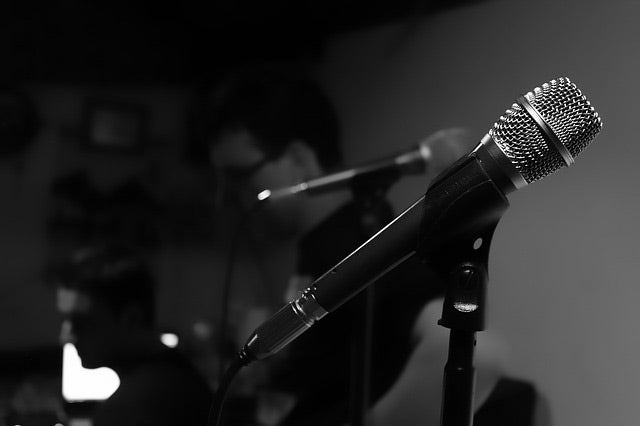1. Be prepared when you enter the studio. Do not assume that the studio has better amps and effects than you do. It is not their responsibility to supply you with the equipment that you play through. It is your responsibility to find out what the studio offers and what you need to bring before you show up to record.
2. Do not expect the sound engineer to set your amp for the sound you want. You are responsible for bringing your signature sound to the studio. Make sure you know what your settings need to be before you show up. Studio time is expensive so you don't want to waste time trying to get your sound right. A sound engineer may make helpful suggestions, but his job is to capture what you create on the recording, period.
3. If your gear does not sound right when it is recorded it is your responsibility to find the solution. Do not look at the engineer and say, "It does not sound right," and expect him to fix it. If you have bad-sounding gear you are going to sound bad recorded through it.
4. Do not wear clothing that makes a lot of noise when you move. Studios have high-quality microphones that can pick up these sounds. A nylon jacket or pants that rustle when you move are not good ideas for the studio. Besides, who are you going to impress in the studio by what you wear?
5. Know your part. As I mentioned earlier, studio time is expensive. The studio is not the place to start trying to figure out what you are going to play. You need to have your parts down solid before you go into the studio or it is going to cost you big bucks before the project is finished.
6. Get plenty of rest before a session. Sometimes a recording session can turn into an all-nighter. If you are tired before you show up, your music will reflect this. Recording in the studio can be very rigorous.
7. Be relaxed. If you make a mistake it can be corrected. Don't spend your time trying to impress the sound engineer and producer. I will guarantee you they have heard better players and more than likely you are not going to make any jaws drop. On the same hand, they have probably seen those better players make mistakes too. Just relax and play what you know. The big shot rock 'n' roll attitude will do you absolutely no good in the studio. It is better to adopt a polite and courteous attitude. Be sure to thank all those who work there for their efforts and time. They deserve the recognition and they will remember you if you give it.
8. Make sure you have eaten before you go into the studio. Being hungry is a distraction that will take away from your playing abilities. I suggest a light meal that won't make you feel sluggish. And take it easy on sugars that will make you feel wired and crash a few hours later. Excessive caffeine is probably not a good idea either.
9. Guitar and bass players should put on a set of fresh strings before going into the studio. New strings will sound much better than those crusty old corroded strings you may have on your guitar now. The other night I was trying to figure out an acoustic guitar part to a song on a CD. I had the notes right but I just could not get the guitar to sound quite like the one on the recording. I had not changed the strings on the guitar for awhile, so I decided to try a new set. After I put the new strings on I plugged in again and tried to play the song without changing any setting I had been using. What I was playing suddenly sounded just like the guitar on the recording. <Editors note: Put those new strings on a day or two in advance of your recording session to stretch them. That way they’ll hold better tune in the studio.>
10. Make sure that all your gear is in good working order. Guitars should be intonated and checked for problems such as sticky or scratchy control pots, proper grounding, and electrical shorts. Always carry a couple of spare guitar cables, and if you use a tube amp, have a couple of spare tubes on hand. Carry a small tool kit for any minor adjustments you may need to make and always have a few spare sets of strings and the tools to change them.





Share:
Hands-On Review: PreSonus Studio One 3
5 Basics for Learning Classical Guitars